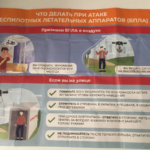Budget deficit and the war

How much does the average Russian citizen spend on the war? After all, we pay every day for the invasion of the neighboring country: we buy goods that have become more expensive, pay for utilities at increased tariffs, do not receive normal services in the hospital, use broken roads, walk along unlit streets…
Starting from 2024, we will pay even more for all this, because from this year, perhaps only state employees, or more precisely, those who are related to the military and industrial complex, will begin to live better. In 2024, it is planned to spend 36 trillion 660 billion rubles – record expenses for our budget. Of these, 10 trillion 700 billion will be various military expenses. You can also add here the costs of other law enforcement agencies, for example, the Russian National Guard – 3 trillion 500 billion rubles. Together – 40% of the Russian Federation budget. At the beginning of the war, these expenses were one and a half times less.
This year it is planned to earn 35 trillion rubles.
The arms race was one of the destructive factors for the economy that led to the fall of the Soviet Union. The United States today spends approximately twice as much as the Russian Federation on armaments, but they can afford this because they are the world’s first economy in terms of GDP, and the Russian Federation is the eleventh one. There are signs that our country has not heeded the lessons in this area. Even now it wants to develop the production of all types of weapons, which is a futile step from an economic point of view…
Great part of the military expenses are payments to the families of dead soldiers, compensation for injuries, military salaries and pensions (very high), food and transport allowances for military personnel, etc. There remains approximately 50%, which can be used for investment in the military and industrial complex, but they are unprofitable: return per invested ruble is less than one ruble.
In general, investments in the military and industrial complex should be the locomotive of the economy: wages rise, demand grows (or at least is maintained), the economy is protected from stagnation. But in reality, the military and industrial complex itself is constantly producing debts – it has retained all the disadvantages of the old Soviet economic system, while losing all its advantages, and no one will work effectively in the command economic system. The military and industrial complex of the Russian Federation will always work at a disadvantage and will constantly be in debt to its creditors (state banks). The state will cover these debts, and the money for this will be taken from our taxes.
And it would be “good” if weapons produced by the Russian military and industrial complex could be sold, but here international economic sanctions become an obstacle, Russia is losing its position in the international arms market – it has already slipped to third place in the world. And in the future… for the successful functioning of the military economy, it will constantly need wars; it will no longer be able to live without them. This is well proven by the experience of the deceased USSR – weapons under the guise of agricultural machines were transported by our dry cargo ships all over the world, supplied to one side of the conflict, and at the same time to the other one.
This year, the Russian military budget exceeded spending on the social sphere: 7.5 trillion rubles versus 10.7 trillion – a third more! We will soon feel this in our own skin, and even now we are gradually starting to notice it. We all saw an example of the lack of money this winter, when all over Russia, old and requiring replacement utility lines began to burst due to frost. The state has clearly made a choice in favor of spending on the war – repairing boiler houses and renewal of equipment in hospitals are not a priority! And the longer the war is going on, the more problems there will be with social services.
The promised salary increase is a cunning screen: salaries increase by 10%, but incomes do not. If the government issues more banknotes to cover the deficit, and the purchasing power of the population decreases, then what kind of increase is this? But such a policy is beneficial to the state: people with loans, in debt to the state are more profitable for it than those who provide for themselves and are financially independent.
The new budget of the Russian Federation deprives us of the future, the government invests money in tanks, and not in new production, it pays for destruction, not creation, but you and I – ordinary citizens – will have to pay for all this!


Leave a Reply